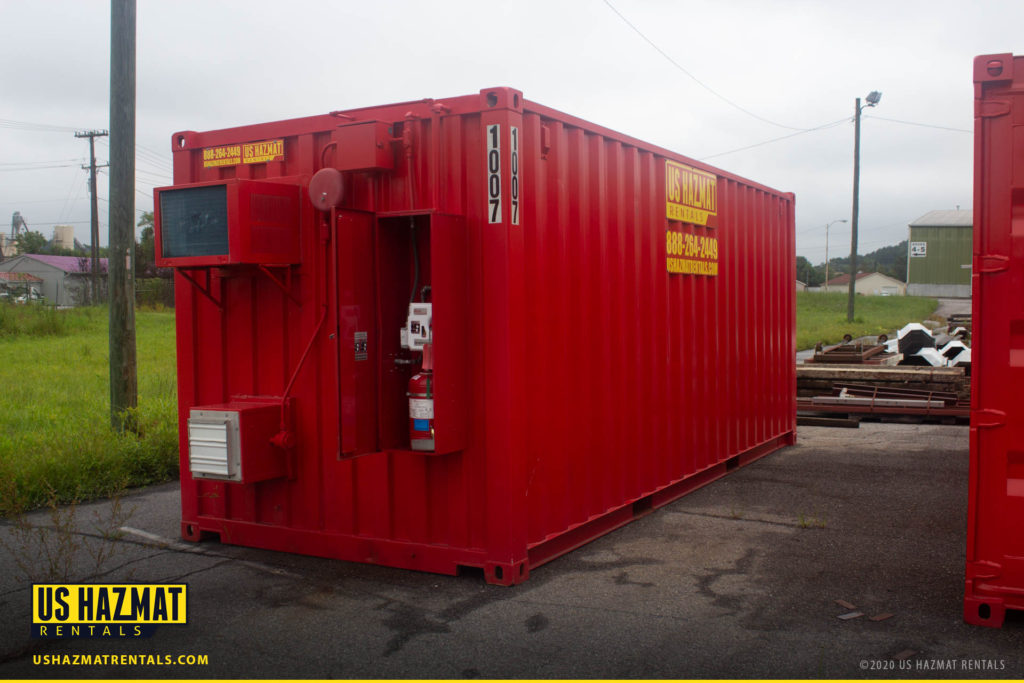Synthetic resins are the predominate precursor chemical used in composite manufacturing. With the help of exothermic, or heat-generating reactions, resins can form powerful chemical compounds that are most commonly used as seals, additives and adhesives. Resin systems generally fall under two categories: thermosetting and thermoplastic. Thermosets are far more prevalent in industrial application. These resins require an additional curing or heating element to harden the element, making it virtually impenetrable to moisture and corrosion. Some of the most common thermoset resins include epoxies, polyurethanes, amino resins and polyamides. U.S. Hazmat Rentals has a line of fire-rated storage lockers to ensure compliant resin storage in each stage of the manufacturing process.
Control Low-Flash Points and Maintain Chemical Consistency With Climate Controlled Storage
Like with any product that requires an exothermic reaction for final application, resins have a very low flashpoint, increasing the risk of fire. Polyester resin, which is a pre-curing resin used to create fiber composites and Duroplaste, has a very low flash point and is susceptible to volatile chemical reactions if stored with incompatible materials. Resin vapors can also emit toxic vapors. When inhaled, toxic epoxy fumes, can irritate the nose, throat and lungs. Improper epoxy storage can be detrimental to employee health and result in civil penalties from OSHA, as well as untimely and costly lawsuits. U.S. Hazmat Rentals’ compliant resin storage systems provide climate controlled ventilation options that can prevent dangerous chemical reactions and fire.

Resins and Rigid Polymer Applications

Synthetic resins vary depending on application and classification. Polyester resins are commonly used as autobody fillers, laminates, exercise equipment and as industrial coatings and primers. Phenolic resins are conversely used in insulation, electronic components and event paint. With a focus on cost effectiveness and accessibility, polycarbonate resins are an industry-go-to for metal replacement parts, electrical equipment and even safety helmets. Polyurethane resins are perhaps the most versatile and durable classification of resins and are most often used for protective liners and insulation.
Forming the Power Building Blocks of Rapidly Expanding Industry

Electronic miniaturization, and by greater extension, the Digital Revolution would not have been possible without the help of resins. Silicone compounds formed with precursor resins help bond, seal, and coat vulnerable electrical components, protecting them from temperature fluctuations and contaminants. Without these lasting molecular bonds, our modern world would be stuck in the age of vacuum tubes and oversized, bulky electronics. Everything from smart phones and satellite systems, to medical implants and common household appliances would not be possible without synthetic resins. And with so many industries now relying on complicated electrical systems for product completion, compliant resin storage can help streamline operations with a designated storage area that is away from incompatible materials.






